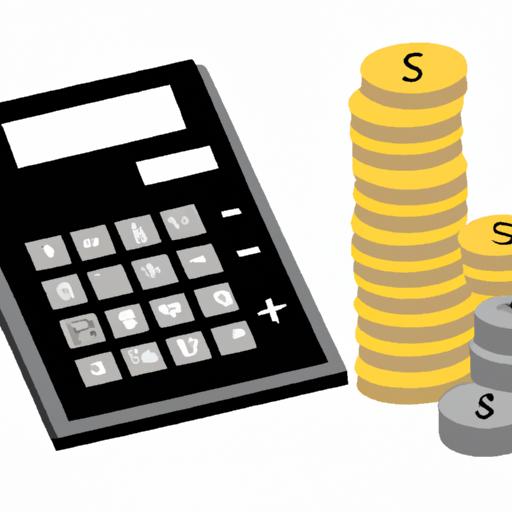Introduction
In the vast landscape of higher education, the fields of finance and accounting stand out as pillars of the business world. Finance is the art of managing money, investments, and financial assets, while accounting focuses on tracking, analyzing, and reporting on financial transactions. Both disciplines are crucial for the smooth functioning of organizations, but how do you navigate the decision between pursuing a finance degree or an accounting degree?
As you embark on this pivotal journey towards your future career, understanding the nuances of finance and accounting is essential. Your choice between these two degrees will shape your academic path, career opportunities, and ultimately, your professional trajectory. So, let’s delve into the world of finance and accounting to help you make an informed decision that aligns with your passions and aspirations.
Key Differences Between Finance and Accounting Degrees
Curriculum Differences
When comparing finance and accounting degrees, one of the key distinctions lies in their respective curricula. A finance degree typically emphasizes financial analysis, investment strategies, risk management, and financial markets. On the other hand, an accounting degree focuses on principles of financial reporting, auditing, taxation, and managerial accounting. While both degrees involve a strong foundation in numerical and analytical skills, the specific coursework varies significantly.
Career Paths and Opportunities
The career paths stemming from finance and accounting degrees diverge in terms of job roles and industries. Finance graduates often pursue roles in investment banking, financial planning, corporate finance, or asset management. In contrast, accounting graduates commonly enter careers as auditors, tax accountants, forensic accountants, or financial analysts. Understanding the distinct career opportunities associated with each degree is crucial in aligning your academic pursuits with your professional goals.
Skills Acquired
Beyond the technical knowledge acquired through coursework, finance and accounting degrees also impart unique skill sets. Finance programs cultivate skills in financial modeling, data analysis, risk assessment, and investment decision-making. In comparison, accounting degrees develop skills in financial reporting, auditing, compliance, and taxation. Consider the specific skills you aim to acquire and apply in your future career when weighing the differences between a finance and accounting degree.
Factors to Consider When Choosing Between a Finance and Accounting Degree
Personal Interests and Strengths
When contemplating whether to pursue a finance or accounting degree, it’s crucial to introspect and evaluate your personal interests and strengths. Consider the type of work that excites you the most. Are you more drawn to analyzing financial data and creating reports (accounting), or does the prospect of managing investments and making strategic financial decisions (finance) ignite your passion? Understanding your strengths and interests will help you choose a path that aligns with your natural abilities and inclinations.
Long-Term Career Goals
Another essential factor to consider when deciding between a finance and accounting degree is your long-term career goals. Reflect on where you see yourself in the future and what type of role you envision in the financial industry. Do you aspire to become a financial analyst, investment banker, or perhaps a certified public accountant (CPA)? Understanding your career aspirations will guide you in selecting the degree that best prepares you for your desired career path.
Job Market Demand
Lastly, take into account the job market demand for professionals with finance and accounting degrees. Research industry trends, job growth projections, and the demand for specific roles in both fields. By understanding the current and future job market landscape, you can make an informed decision that positions you for success in a competitive job market. Consider factors such as salary potential, job stability, and growth opportunities to ensure your chosen degree aligns with market demand and industry trends.
Salary and Job Outlook for Finance and Accounting Graduates
Average Salaries for Finance and Accounting Professionals
When considering a career in finance or accounting, one of the key factors that often come to mind is earning potential. Both finance and accounting professions offer competitive salaries, but the specific figures can vary depending on factors such as education, experience, and location. According to the U.S. Bureau of Labor Statistics, the median annual wage for accountants and auditors was $73,560 in May 2020, with the top 10% earning more than $128,680. On the other hand, financial analysts had a median annual wage of $83,660 in the same period.
Job Growth Projections in the Industry
The job outlook for finance and accounting professionals is promising, with steady growth projected in the coming years. The Bureau of Labor Statistics anticipates a 7% growth in employment for accountants and auditors from 2020 to 2030, which is faster than the average for all occupations. Similarly, financial analysts are expected to see a 5% growth in employment during the same period. These projections indicate that both finance and accounting fields will continue to offer ample job opportunities for graduates, making them attractive career paths for those with a knack for numbers and financial acumen.
Conclusion
As we wrap up our exploration of the finance vs accounting degree dilemma, it’s clear that both fields offer unique advantages and opportunities for aspiring professionals. While finance and accounting have distinct focuses and skill sets, they also share common ground that can benefit individuals seeking a career in the financial industry.
By understanding the core concepts covered in both finance and accounting degrees, you can gain a holistic view of financial management and reporting. Moreover, the job prospects in the financial industry are promising for graduates with expertise in either field, with opportunities in various sectors such as banking, investment firms, and corporate finance.
In the end, choosing between a finance and accounting degree comes down to your interests, strengths, and long-term career goals. Whether you are drawn to the analytical nature of accounting or the strategic decision-making in finance, remember that both paths can lead to successful and fulfilling careers in the dynamic world of finance. Trust your instincts, follow your passion, and embark on a journey that will shape your future in the ever-evolving landscape of finance and accounting.


